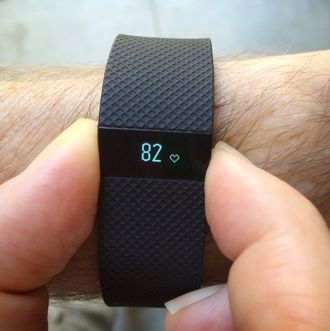
In the world of wearable fitness trackers, Fitbit is king. The company was valued at $4.1 billion last summer when it first became available to public investors, and a study conducted shortly thereafter concluded that Fitbit owns 68 percent of the fitness-band market — if you owned a fitness band, there was a good chance it was a Fitbit. Now at least one university is hopping on the Fitbit bandwagon: Oral Roberts University, a religious school in Tulsa, Oklahoma, is requiring all freshmen to purchase and wear the fitness trackers. According to the Washington Post, students’ fitness data will be uploaded into a (confidential) university system, and students will be graded based on the results. It sounds like great motivation, but in implementing the program ORU administrators are ignoring the inherent flaws in Fitbit data.
According to the Post, students must average “10,000 steps per day and 150 minutes of intense activity (as measured by heart rate) each week.” Together, the data will make up part of their grade in a mandatory health-and-physical-education class. Students must purchase (and pay for out of their own pockets) a $150 Fitbit Charge HR — one of the company’s newer models — to record the data. To clarify, ORU has always had a mandatory fitness program in place as part of its “whole person approach” to education, but until recently fitness was measured through a paper-and-pencil points system. Now their bookstore has already sold more than 550 Fitbits (so, roughly $82,000 worth), according to a university press release.
Marketing ploys aside, there are two problems with ORU’s program. One is that 10,000 steps is totally arbitrary. Yes, it’s better than no steps at all, but the number of steps a person “should” take in a day is different for everyone, and a narrow focus on steps might distract from aspects like, say, healthy eating. The second problem is that the accuracy of Fitbit heart-rate data has recently been called into question. In fact, the company is facing a class-action lawsuit that alleges the heart-rate tracker in the Charge HR is inaccurate by a “significant margin,” especially during periods of intense exercise, which is exactly what the university is hoping to measure.
So it’s bad for measuring cardio. But can’t a Fitbit present an accurate picture of the benefits of other types of exercise? “There are some pretty significant limitations,” Ray Browning, a Colorado State University professor, told The Wall Street Journal. “Cycling, not great. Elliptical training, not great. Yoga, terrible.” Nor are Fitbits designed to recognize the variation in the people wearing them. “You can make millions of smart watches that are identical, but you have millions of people who are not identical,” Chris Harrison, an assistant professor of Human-Computer Interaction, told MIT Technology Review. “It’s really hard to find something that’s robust across all these people.”
Fitbits are good for one thing: motivation. They’re great for making people extremely conscious of how active they are (or aren’t). But when it comes to accurate measurements, they flounder. Fitbit itself confirmed this; in a statement regarding the class-action lawsuit, the company said, “It’s also important to note that Fitbit trackers are designed to provide meaningful data to our users to help them reach their health and fitness goals, and are not intended to be scientific or medical devices.” A student’s grade should not depend on a cheerleader.




